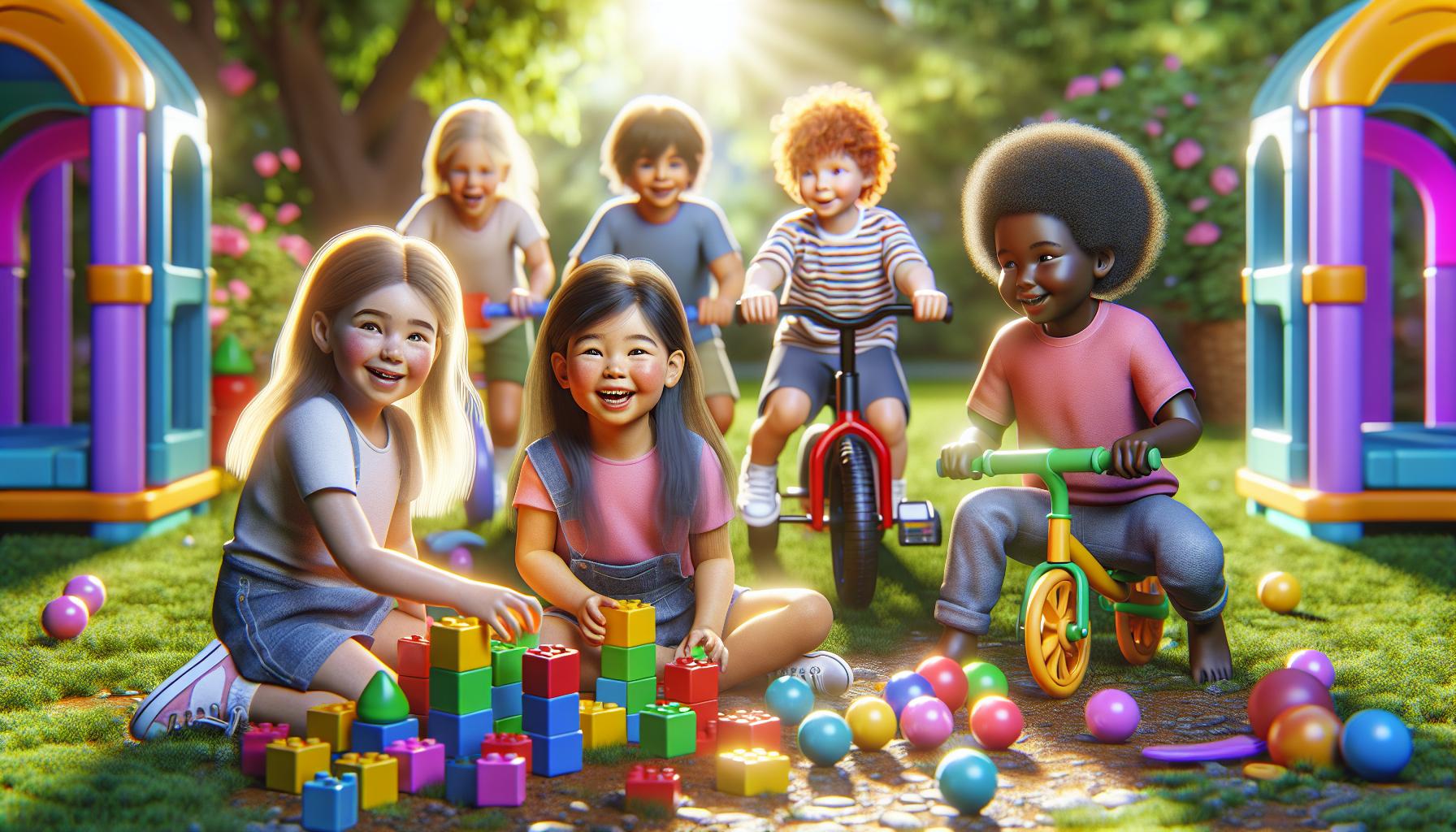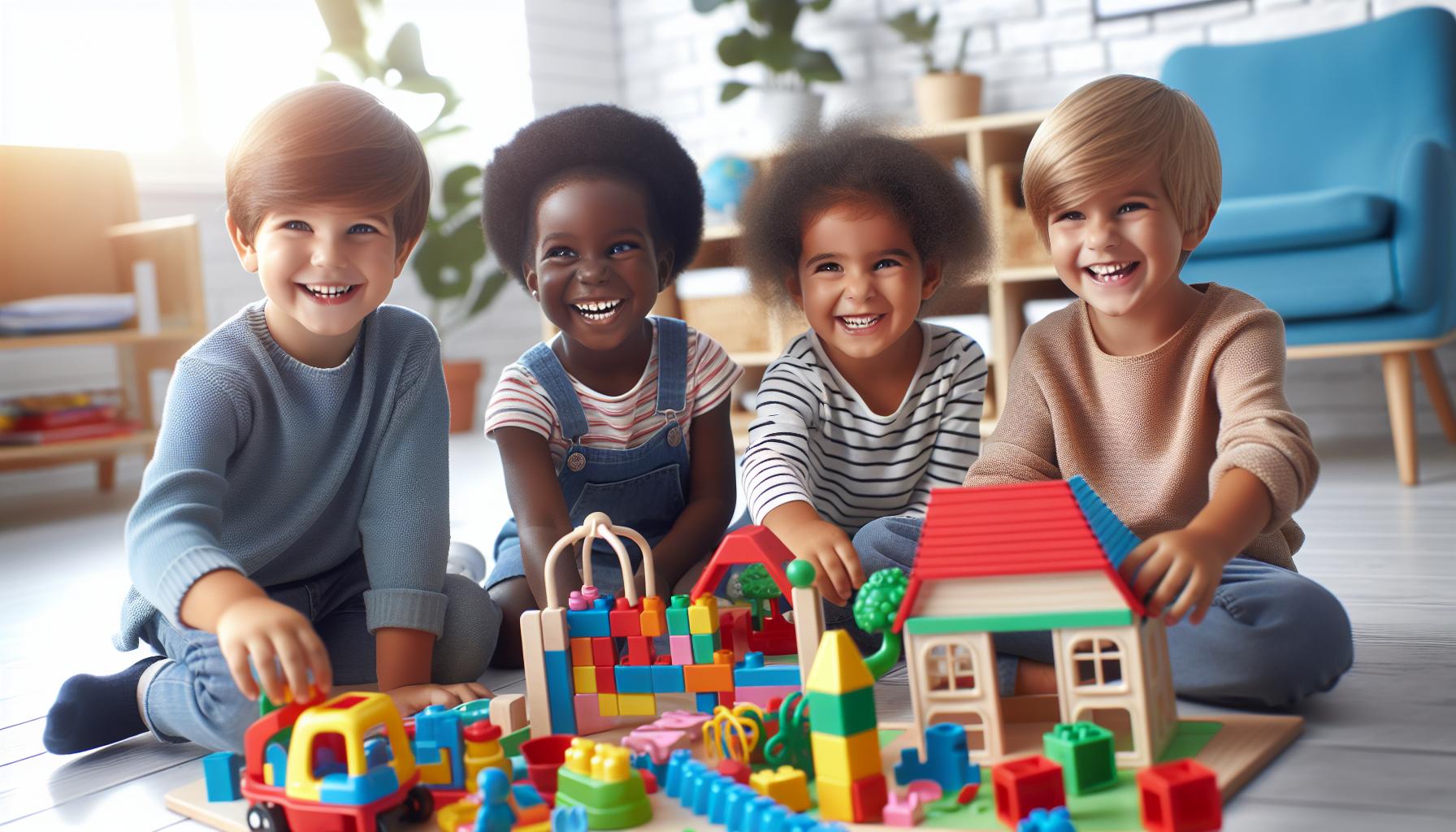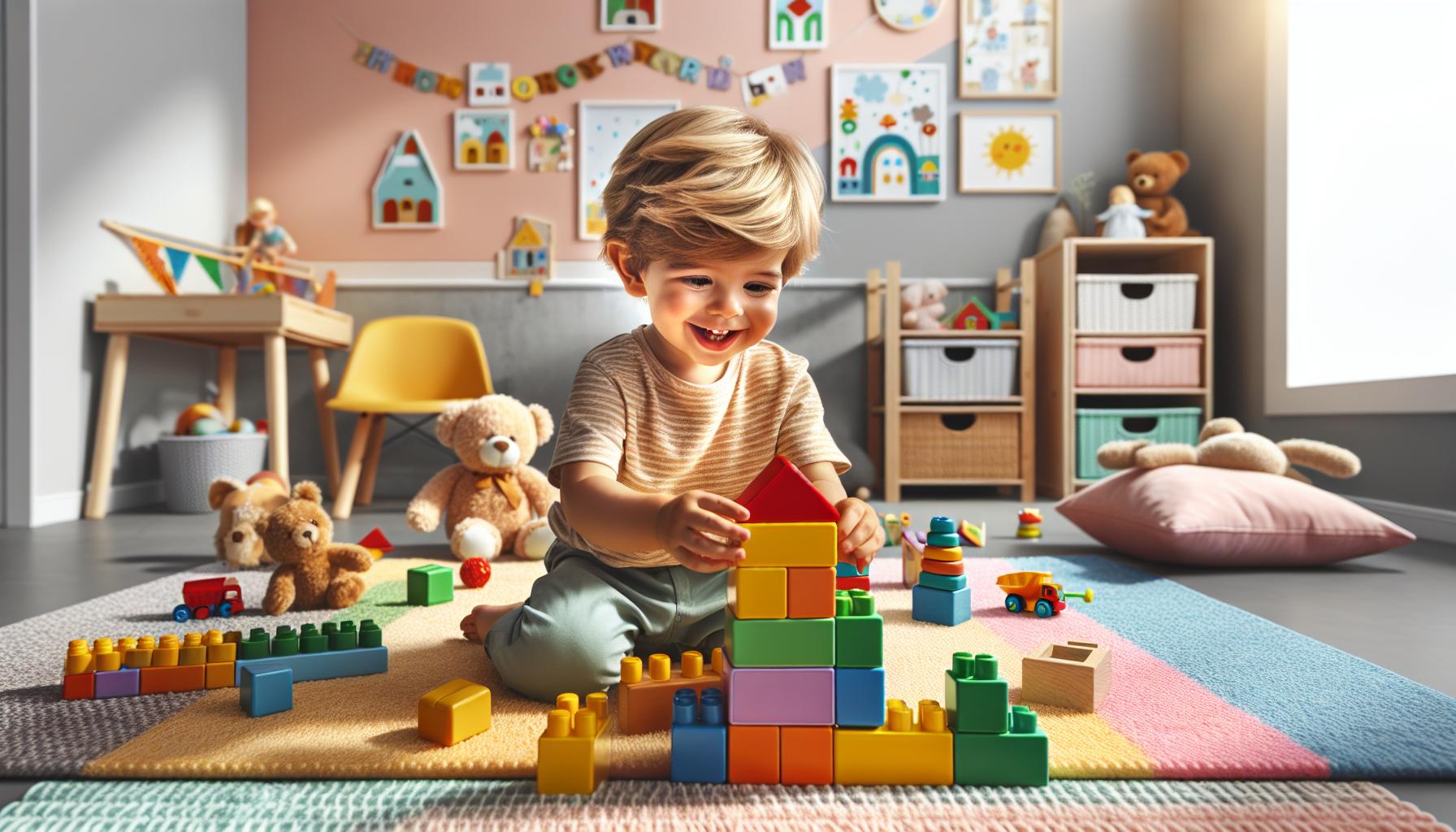Choosing the right toys for children can significantly impact their growth and development. Child development toys are more than just playthings; they play a crucial role in fostering cognitive, emotional, and physical skills. From building blocks that enhance spatial awareness to puzzles that promote problem-solving, these toys are designed to stimulate young minds and encourage creativity.
In today’s fast-paced world, parents often seek toys that not only entertain but also educate. Understanding the benefits of various types of developmental toys can empower caregivers to make informed choices. This article explores the essential features of child development toys and highlights how they can nurture a child’s potential while making playtime both fun and enriching.
Key Takeaways
- Critical Role in Development: Child development toys significantly enhance cognitive, emotional, and physical skills in children, making them essential for growth.
- Types of Developmental Toys: Key categories include building blocks, puzzles, art supplies, musical instruments, and manipulative toys, each targeting specific skills.
- Educational Value: Selecting educational toys that challenge thinking and encourage problem-solving aids in literacy and STEM learning.
- Age-Appropriate Choices: It’s vital to choose toys that align with a child’s developmental stage for optimal engagement and safety.
- Safety Matters: Prioritize toys made from non-toxic materials and regularly inspect them for safety, ensuring a secure play environment.
- Promoting Social Skills: Toys that foster collaborative play help develop essential social and emotional skills, like teamwork and empathy.
Child Development Toys
Child development toys play a crucial role in enhancing various skills in young children. These toys encourage cognitive growth, emotional intelligence, and physical abilities. Parents and caregivers should select toys that not only entertain but also provide educational value.
Key Types of Developmental Toys
- Building Blocks
Building blocks enhance creativity and spatial awareness. Children learn how to construct shapes and structures, promoting fine motor skills. - Puzzles
Puzzles stimulate problem-solving abilities. They require critical thinking and help with hand-eye coordination, as children fit pieces together. - Art Supplies
Crayons, markers, and paints foster creativity. Engaging in art encourages self-expression and develops motor skills. - Musical Instruments
Instruments like drums or xylophones promote auditory skills. Music aids in rhythm recognition and can enhance emotional development. - Manipulative Toys
Toys that require manipulation, such as beads or gears, build dexterity. These toys improve coordination and encourage exploration.
Benefits of Developmental Toys
Developmental toys contribute to a child’s overall growth. They support social interaction as children play together, fostering communication skills. Additionally, these toys enhance emotional regulation by allowing children to express feelings through play.
Choosing the Right Toys
When selecting child development toys, consider age appropriateness. Toys should match developmental stages to ensure safety and maximize learning. Look for toys that provide multiple ways to play, encouraging creativity and prolonged engagement.
Types of Child Development Toys

Various types of child development toys support specific aspects of growth. Each category plays a critical role in nurturing a child’s cognitive, social, and motor skills.
Educational Toys
Educational toys promote learning through play. These toys often include puzzles, construction sets, and interactive games that challenge a child’s understanding of concepts such as numbers, letters, and shapes. For example, alphabet blocks aid in literacy while STEM-related kits enhance problem-solving and critical thinking skills. Selecting toys with age-appropriate complexity ensures children stay engaged while building foundational knowledge.
Sensory Toys
Sensory toys stimulate the five senses, enhancing a child’s sensory processing abilities. Items like textured balls, squishy toys, and sound-making instruments offer a rich tactile and auditory experience. For instance, playdough encourages creativity while developing fine motor skills through squeezing and molding. These toys assist children in regulating their emotions and improving focus in chaotic environments.
Active Play Toys
Active play toys encourage physical movement and gross motor development. Options include ride-on toys, climbing structures, and sports equipment. For example, a balance bike enhances coordination and balance, while a soccer ball promotes teamwork and social skills. Ensuring that active play toys are safe and appropriate for a child’s ability level fosters confidence and promotes a healthy lifestyle through physical activity.
Benefits of Child Development Toys

Child development toys offer numerous advantages that significantly enhance a child’s growth. These toys play a vital role in fostering cognitive, physical, and social-emotional skills across various developmental stages.
Cognitive Development
Cognitive development involves the enhancement of thinking, learning, and problem-solving abilities. Toys like building blocks and puzzles promote logical thinking and spatial awareness. These toys challenge children to analyze, strategize, and develop solutions. Engaging in imaginative play with dolls or play figures encourages creativity and storytelling, which further bolsters language skills and comprehension. Interactive educational toys, such as tablets or counting games, reinforce foundational literacy and STEM concepts, providing a solid base for lifelong learning.
Physical Development
Physical development focuses on the enhancement of gross and fine motor skills. Active play toys, such as balls, ride-on cars, and climbing structures, promote coordination and balance. These toys encourage children to engage in physical activities, improving overall health and fitness levels. Fine motor skill development occurs through activities like threading beads or manipulating building sets, which strengthen hand-eye coordination and dexterity. Consequently, active play contributes to a confident and healthy lifestyle, essential for long-term well-being.
Social and Emotional Development
Social and emotional development is critical for building interpersonal skills and emotional intelligence. Cooperative games and group activities foster teamwork, communication, and empathy. Role-playing toys, such as kitchen sets or doctor kits, allow children to explore various social roles and learn about emotions. Engaging with peers while playing promotes the ability to share, negotiate, and resolve conflicts, essential skills for successful relationships. Additionally, toys that support emotional expression, like art supplies, enable children to articulate their feelings and enhance emotional regulation.
Choosing the Right Child Development Toys

Selecting appropriate child development toys involves understanding the child’s needs and growth stages. Focusing on age-appropriate options and safety considerations ensures effective learning and engagement.
Age-Appropriate Options
Age-appropriate toys cater to a child’s developmental stage, fostering essential skills. Infants benefit from soft sensory toys that encourage exploration and stimulate their senses. Toddlers thrive with building blocks and shape sorters, promoting fine motor skills and problem-solving. Preschoolers engage with more complex puzzles and educational games that enhance cognitive abilities and creativity. School-aged children profit from STEM-related kits and creative arts supplies, encouraging critical thinking and collaboration. Ensuring alignment between toys and developmental milestones maximizes their impact on growth.
Safety Considerations
Safety is paramount when selecting child development toys. Parents should prioritize toys made from non-toxic materials, free of harmful chemicals and small parts that could pose choking hazards. Checking for appropriate age labels on products helps avoid items unsuitable for specific age groups. Regular inspections for wear and tear ensure toys remain safe over time. Following guidelines from established organizations like the Consumer Product Safety Commission (CPSC) aids in making informed choices, protecting children during play. Ensuring toy safety promotes a secure and enjoyable play environment essential for healthy development.
Choosing The Right Developmental Toys
Choosing the right developmental toys is crucial for a child’s growth. These toys not only entertain but also nurture essential skills across various domains. Parents and caregivers can significantly impact their child’s cognitive, emotional, and physical development by selecting toys that align with their child’s age and needs.
Investing time in understanding the benefits of different types of toys can lead to more informed choices. This ensures that playtime is both fun and enriching. Prioritizing safety and developmental appropriateness will create a secure environment where children can thrive. Ultimately, the right toys can pave the way for lifelong learning and healthy development.